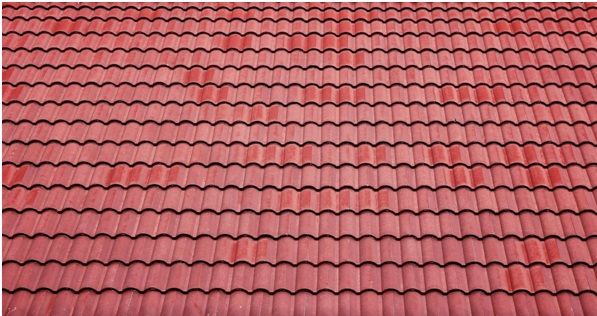Clay roof tiles have been used as a roofing material for centuries, offering an attractive, rustic look that can enhance the exterior of any home. However, it’s essential to consider both the advantages and disadvantages of using clay roof tiles before taking on this type of project.
A form of roofing material made from natural clay is called clay roof tiles. They have been used for centuries in many parts of the world, due to their durability and resistance to water damage. Clay roof tiles come in a variety of shapes and sizes, allowing them to be tailored to fit any home or building’s architecture. They are also fire-resistant and require less maintenance than other roofing materials. As a result, clay roof tiles are a popular choice for many homeowners, due to their aesthetic appeal and long-term durability.
The benefits and drawbacks of clay roof tiles will be covered in this article. In addition, it will explain why clay tiles are a popular choice and their potential drawbacks. The goal is to give readers an accurate overview of the pros and cons of using clay roof tiles for their homes or commercial building. By understanding these factors, homeowners can make an informed decision when selecting the right type of roofing material.

Credits: Freepik
Advantages of Clay Roof Tiles
Durability and longevity
Clay roof tiles are highly durable and can last for up to 50 years in some cases, making them a great investment in the long term. Additionally, they require little maintenance, as they are resistant to cracking, rotting, mold growth, and other damage from extreme temperatures or weathering.
Aesthetically pleasing
Clay roof tiles also have an attractive look that can add to the exterior of any home. They come in various colors, shapes, and sizes, making them easy to customize for any building’s architecture. Additionally, clay roof tiles are naturally fire-resistant and can enhance the safety of your property.
Energy efficient
Clay roof tiles can also be energy efficient, reflecting the sun’s rays and keeping homes cooler in hot climates. They are also easy to install and require minimal upkeep, making them a great option for homeowners looking for more affordable roofing material.
Low maintenance
Clay roof tiles are low maintenance, requiring minimal upkeep and rarely needing to be repaired or replaced. In addition, they do not easily rot, crack, or become damaged from extreme weather conditions or temperature changes, making them a great choice for homeowners who want a reliable and long-lasting roofing material.
Fire resistant
Clay roof tiles are naturally fire resistant, making them ideal for homes prone to wildfires or other natural disasters. The material’s fire resistance also enhances the safety of your home by acting as a barrier against external heat sources.
Disadvantages of Clay Roof Tiles
High cost
Clay roof tiles can be expensive, requiring specialized skills and equipment. Additionally, their high cost of materials makes them an unaffordable option for many homeowners on a budget.
Heavy weight
Clay roof tiles are also heavy, making installation difficult on existing structures. This can add extra costs to the installation process, as additional structural supports may be required.
Fragility
Clay roof tiles can be fragile and are susceptible to breakage when walked on or subjected to large amounts of pressure. Thus, they must be handled with care during installation and regular maintenance.
Requires professional installation
Clay roof tiles also require professional installation, as they are difficult to install independently. A licensed contractor must be employed to ensure that the tiles are installed properly and securely.
Limited color options
Finally, clay roof tiles have limited color options, only available in natural terracotta and dark brown shades. This can limit the range of design possibilities when building a home or commercial property.
By understanding the advantages and disadvantages of clay roof tiles, homeowners can make an informed decision when selecting the right roofing material for their homes. Clay roof tiles offer many benefits, but their weight, fragility, and limited color options should also be taken into consideration. With the right installation and care, clay roof tiles can provide a long-lasting and attractive covering for any property.
Environmental Impact of Clay Roof Tiles
Sustainable manufacturing practices
Clay roof tiles are produced using sustainable manufacturing practices, utilizing natural materials from the earth and reducing energy consumption during production. Additionally, clay roof tiles can be recycled and reused for up to 50 years, making them a great choice for homeowners looking for an environmentally-friendly roofing solution.
Recyclability and reusability
Clay roof tiles can be recycled and reused for up to 50 years, making it an eco-friendly option that can save resources in the long run. Additionally, clay roof tiles are easy to install and require minimal maintenance, allowing homeowners to enjoy a low-maintenance roofing solution without sacrificing durability.
Energy efficiency and insulation benefits
Clay roof tiles offer energy-efficient insulation benefits, as they can reflect sunlight away from the home and reduce heat transfer in hot climates. Additionally, clay roof tiles can help keep homes cool in summer and warm in winter, making them a great choice for homeowners looking to save on energy costs.
Comparison with other Roofing Materials
Comparison with asphalt shingles
Compared to asphalt shingles, clay roof tiles offer more durability and fire resistance. Additionally, clay roof tiles are more eco-friendly than asphalt shingles, as they can be recycled and reused for up to 50 years.
Comparison with metal roofing
Compared to metal roofing, clay roof tiles offer lower installation costs and more color options. Additionally, clay roof tiles are fireproof and energy-efficient, making them a great choice for homeowners looking for an eco-friendly roofing solution.
Comparison with concrete tiles
Compared to concrete tiles, clay roof tiles offer lighter weight and more durability. Additionally, clay roof tiles are easy to install and require minimal maintenance, making them an ideal choice for homeowners looking for a low-maintenance roofing solution.





